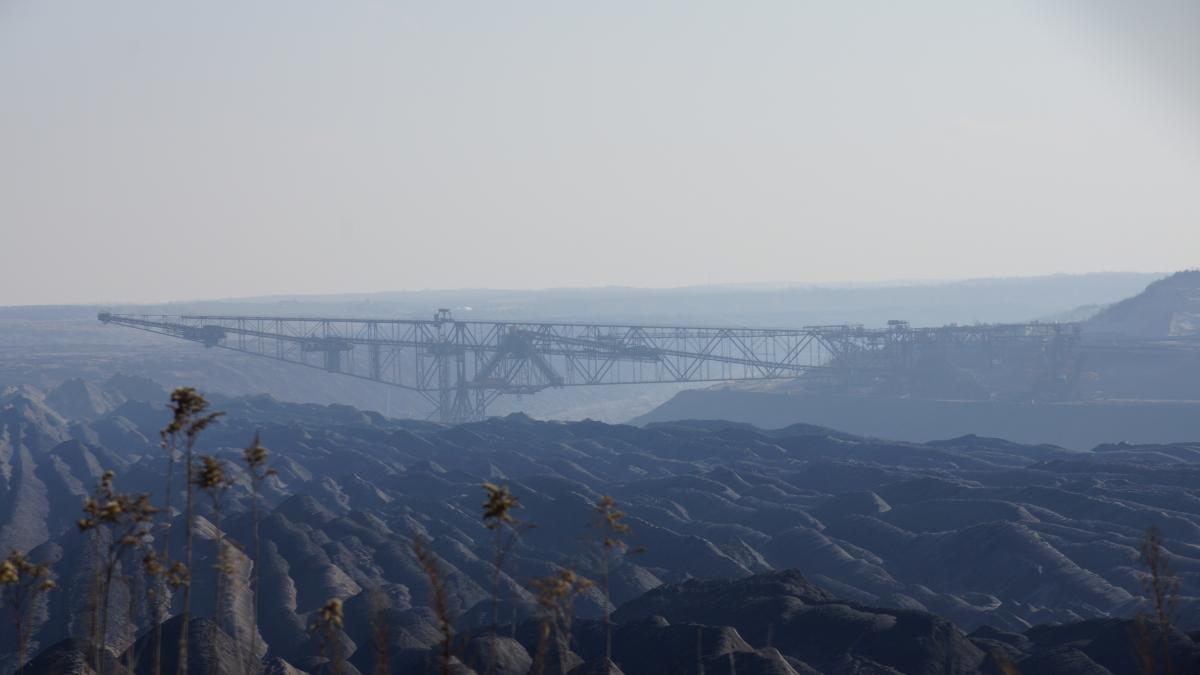New owner scraps plans to expand east German lignite mine
“These investments are no longer justifiable from a business perspective, due to the conditions that federal policy and economy brought on in the meantime,” LEAG CEO Helmar Rendez said. The federal government “apparently wants to reach Germany’s climate goals primarily at the expense of lignite,” he added.
LEAG said Thursday it had cancelled plans for a new coal-fired power plant in the Brandenburg municipality Jänschwalde, as well as expansion of the nearby lignite mine, whose current exploitation is to end in 2023.
LEAG, or Lausitz Energie Bergbau, is a subsidiary of Czech mining company EPH, which bought the lignite operations from Vattenfall last year. They are located in the region of Lusatia, which spans the federal states of Brandenburg and Saxony.
LEAG is also scaling back plans to expand a second mine at Nochten, and postponed the decision over a third, Welzow-Süd, until the company can “better assess how Germany’s nuclear phase-out would affect the supply situation and electricity prices” and how government policy will affect lignite in general, the company said in a press release. The decision is to be made by 2020.
The beginning of the end for lignite?
Lignite, or brown coal, continues to play an important role in Germany’s energy supply, covering almost a quarter of the country’s electricity consumption. Together with hard coal, the carbon-heavy fuel is one of the biggest obstacles to Germany’s long-term climate goals and the main reason the power sector still accounts for over a third of the country’s CO2 emissions.
Germany looks set to miss its target of cutting emissions 40 percent by 2020 compared to 1990 levels, despite its Energiewende project having succeeded in rapidly expanding renewable power generation. The country has now begun to take aim at 2030 targets with the adoption of the Climate Action Plan 2050.
The 2050 plan failed to set a deadline for Germany to give up coal. But the debate over an end to coal-fired power generation is playing heavily in the run-up to local elections in the Western coal-mining state of North Rhine-Westphalia (NRW) in May, as well the federal elections in September. Last year, the NRW government – a coalition of Social Democrats and the Green Party – scaled down plans to mine lignite in the state.
Energy policy experts said LEAG’s announcement was a further indication that brown coal’s days are numbered in Germany. “This is clearly the beginning of the end for lignite in Lusatia,” Christian von Hirschhausen of the German Institute for Economic Research (DIW) told the Clean Energy Wire. “It also is a realisation that lignite has no future in Energiewende Germany. The matter is settled.”
Even aside from climate concerns, lignite no longer makes economic sense, von Hirschhausen argues. Putting the decision over Welzow-Süd on hold was “pure diplomacy,” and an effort to save face, he said. “In 2020, we’ll be in a different universe” – one where Welzow-Süd will face the same fate as Jänschwalde.
In June 2014, the state government of Brandenburg ruled that former owner Vattenfall could continue mining in Welzow-Süd beyond 2026, even though 810 people would have to be relocated to make way for extended operations.
In light of LEAG’s decision, the state premiers of both Brandenburg (Dietmar Woidke), and neighbouring Saxony (Stanislaw Tillich), stressed that putting the extension on hold did not represent a change of policy. “The decisions are exclusively with the company,” they said in a joint press release. “The state governments have no influence on them.”
“Our joint goal is to now address Lusatia’s structural transition at full tilt: With lignite, and for the time thereafter,” Tillich added.
Hauke Hermann, senior researcher for energy and climate protection at the Institute for Applied Ecology (Öko Institut), told Clean Energy Wire a German coal exit could become part of coalition agreement negotiations after the federal elections later this year.
And even if it didn't, Germany’s Climate Action Plan 2050 offered a clear commitment to deal with the question from next year on, Hermann said. In 2018, a commission for “Growth, Structural Change and Regional Development,” designed to “support the structural changes” as a result of the country’s energy transition will begin its work and is expected to focus on dealing with the economic impacts of giving up coal.
Mixed reactions
While some analysts hailed the LEAG’s decision as a death knell for lignite, Albrecht Gerber, Economy and Energy Minister of the state of Brandenburg, said he welcomed it as a “clear commitment to lignite-fired power generation and Lusatia” for many years to come. Germany needed Lusatia’s lignite to ensure the energy transition’s success, as renewables couldn’t yet supply companies and households at internationally competitive prices, he added.
Trade Union for mining, chemicals and energy industries IG BCE said the decision was an “important step to make lignite-fired power generation future-proof” in Germany, and that after years of uncertainty, the long-term outlook for the mining region was finally clear.
Environmental organisation WWF meanwhile, called for a complete moratorium on new and expanded lignite mining operations. “With today’s decision, LEAG suggests coal will endure. That’s not the case,” Christoph Heinrich of WWF said in a press release.
With the Paris Agreement, Germany has committed to limiting global warming to 2 degrees Celsius, meaning the country must get an “organised and socially compatible coal exit” off the ground as soon as possible, and complete it by 2035, Heinrich said.
For locals who faced possible relocation the decision comes as a relief. Monika Schulz-Höpfner told public broadcaster rbb: “Ten years of uncertainty have come to an end today – or so I hope.” A neighbour added: “I’m really relieved that I can now tell my kids: Guys, we can stay here. This is our home and nobody can take it away from us.”


